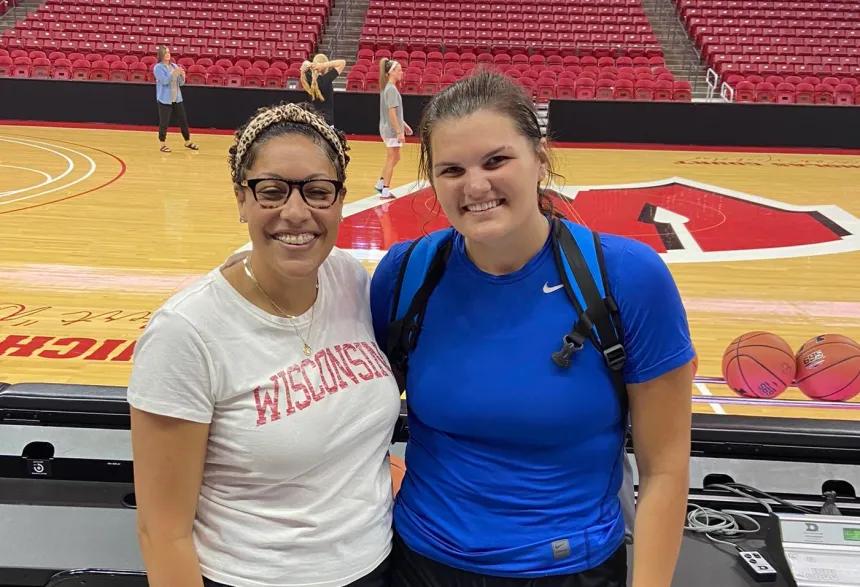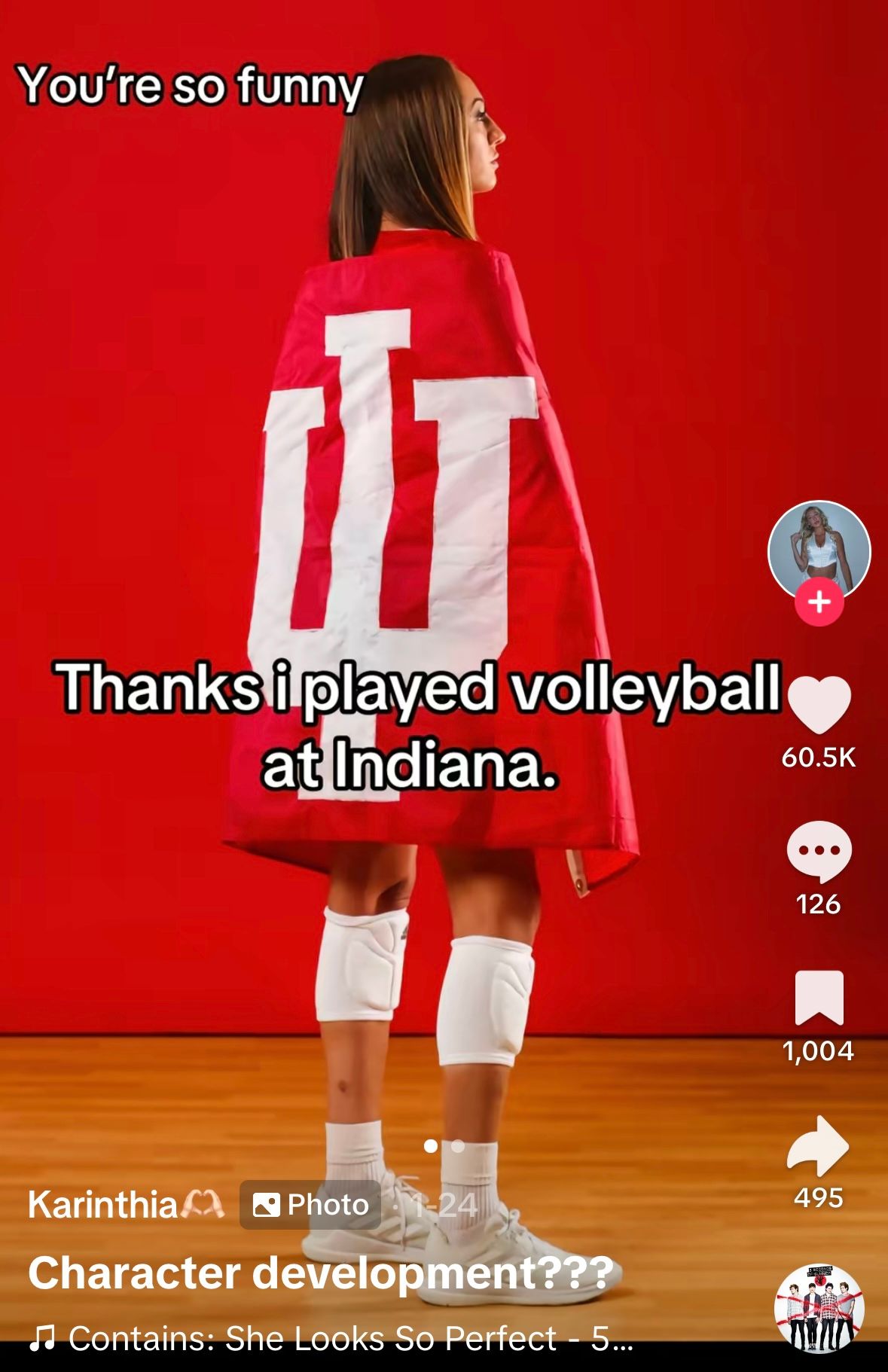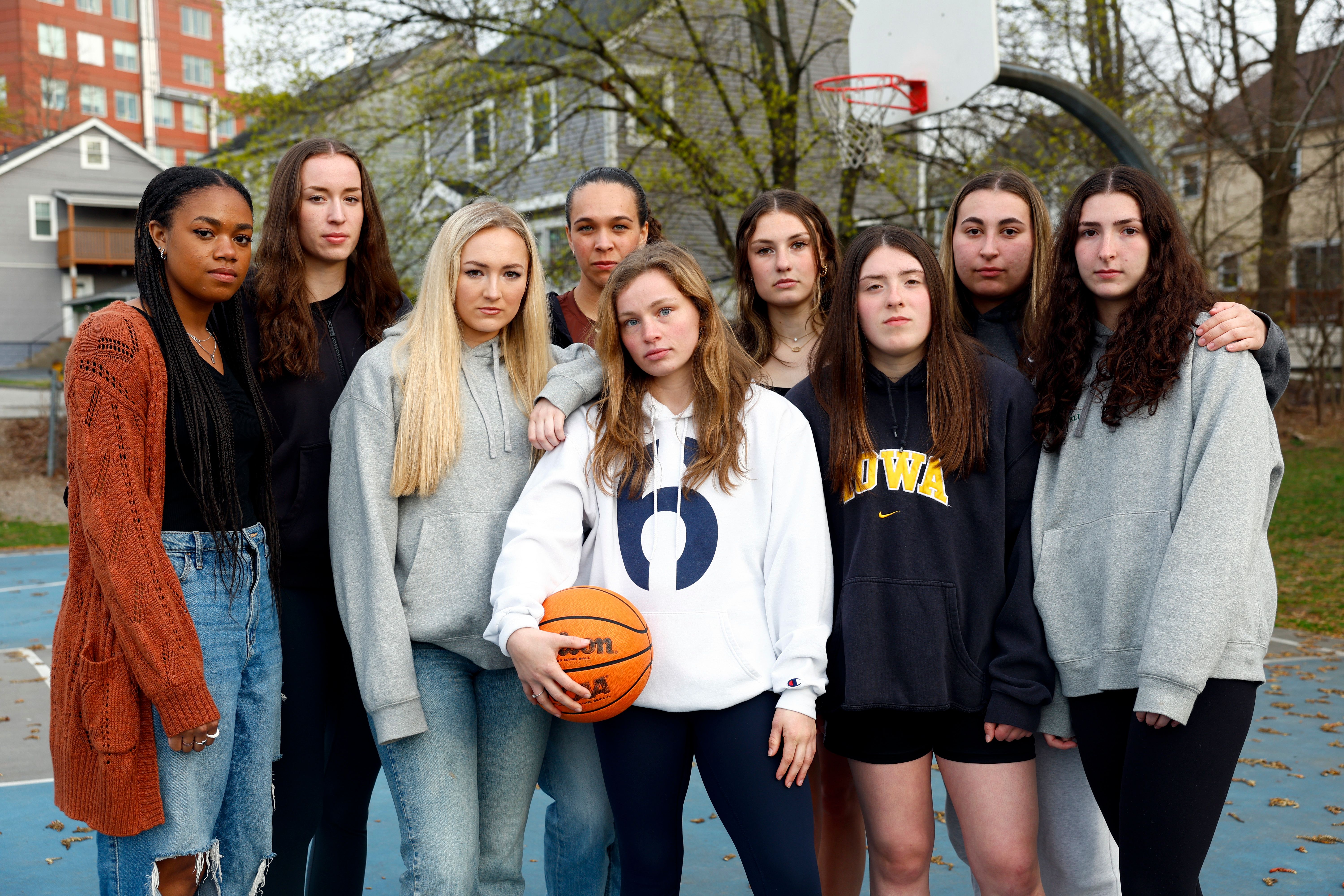Women's college athletes speak out against coach mistreatment
Across schools, conferences, and divisions, athletes are finding ways to share stories of mistreatment from coaches.
When former Wisconsin basketball player Tessa Towers posted a tell-all as part of the TikTok trend of athletes sharing their mistreatment by coaches to explain why they are funny, it sent more shockwaves through the women’s college sports community. Towers detailed the dehumanizing experience she went through as a player under head coach Marisa Moseley, sharing stories of degrading treatment, including enduring emotional mistreatment, like being yelled at and threatened by her coaches and being brought to tears every time she met with them. She also detailed allegations of medical transgressions, stating that her coaches made her sign release forms so they could access information from her therapy sessions and that they treated her “like a lab rat,” regularly putting her on different medications to control her emotions while wanting her to get tested for autism. After taking a leave of absence from the team, Towers transferred to Ball State after two seasons.
The content from Towers’s TikTok was distressing, but to some, it was far from surprising. Of the thousands of comments under Towers’s post, a few even came from her current and former Badgers’ teammates. “I’m just glad we are away from that,” wrote Imbie Jones, who transferred out of the program the same year as Towers. “Oh wait I’ve been through that too,” added Krystyna Ellew, who was part of Towers’s recruiting class, per Badger Extra.

Mistreatment at the hands of a coach? Many have heard – or lived – this story before.
The University of Wisconsin is looking into the allegations, per the Associated Press. But the problem of improper player treatment at the hands of belittling, allegedly abusive coaches is not exclusive to Wisconsin. For years, current and former female athletes at the collegiate level have been speaking out and trying to garner attention for the mistreatment they’ve experienced at the hands of their coaches or leadership staff. And whether through formal platforms like print journalism or modern mechanisms of self-expression like TikTok, athletes are attempting to bring attention to what many perceive to be a coach-abuse endemic in the NCAA that for years has gone somewhat unchecked and ungoverned.
These efforts to call attention to these issues, so far, have yielded mixed results. A 2022 feature from the Indiana Daily Student, which detailed heinous allegations against head volleyball coach Steve Aird, has yet to result in any action taken against the coach. The article wrote that Aird created a culture of fear on his team and pushed his athletes to the point of total physical and mental deterioration. Athletes said that Aird “ran practices and drills to the point [they] would break into tears and begin to throw up,” and that he would comment on which players needed to lose or gain weight. Players, who spoke under the condition of anonymity with the Daily Student, stated that, even after graduating, they “feared he would use his connections to retaliate” against those speaking out against him. While Indiana opened an investigation against Aird, he was ultimately left untouched in his role. Former players who filed the complaint also participated in the latest TikTok Trend.

The results of a similar effort differed for the volleyball players of Texas Southern University, who, in 2022, contributed to a Title IX investigation at their university to have their coach, Cynthia Cooper-Dyke, removed from the organization. Per Global Sport Matters, the investigation at Texas Southern included allegations of improper behavior against Cooper-Dyke, such as use of inappropriate and sexual language, weight and body shaming, and dismissive attitudes about mental health. “This woman mentally and emotionally terrorized us,” an athlete who played under Cooper-Dyke told The Athletic.
At Brandeis University in 2024, members of the women’s basketball team united in a refusal to play under head coach Carol Simon. Per WGBH, players accused Simon of creating a toxic culture, “with allegations ranging from use of racist language to a disregard for player injuries to poor coaching.” This action from Simon’s team ultimately led to her early retirement later that season.

Reports of student-athletes struggling with their mental health is at a high. A survey from the NCAA in 2021 found “spikes among athletes who experienced mental exhaustion, anxiety and depression,” compared with a similar survey two years earlier. College athletes are also less likely to seek out help than their peers for a variety of reasons, including a fear of retaliation or punishment from their coaching staff. Per research from Duke University, around “33% of all college students will experience serious mental health struggles,” and of college athletes experiencing mental health struggles, “only around 10% seek help.” Due to factors like balancing a difficult schedule, recovering from the pandemic, and increased pressure around NIL, among others, student athletes are in deep need of support from their coaches, not *gestures around* whatever this is.
So, how can NCAA programs ensure that coaches are not only not mistreating their athletes but also truly supporting them? For starters, accountability and communication throughout all of the NCAA, at every level, is necessary. If a coach is removed from his or her position because of allegations of player mistreatment they should not be able to easily return to coaching, as long as the new location is far away enough for them to essentially “start over.” Thorough investigations, including talking with former and current players, should be conducted, and outcomes of these investigations should be made public, so that other schools have the information they need when conducting hires and building their teams.
Secondly, college athletic departments can also provide more mental health services and resources for athletes themselves and encourage them to use the services so they don’t feel like internet exposure is their only path toward healing. TikTok and other social media outlets serve a specific use that help players who have suffered find their voice. But if athletic departments improve their coaches’ awareness of, and sensitivities towards, how safe and healthy their players feel, they may be able to avoid scenarios where players feel they need to speak out against their coach on their own. And lastly, but perhaps most significantly, colleges can also implement standards in the NCAA of what actually constitutes abuse, like the International Olympic Committee. This way, colleges can have on hand an actual metric for which they can hold coaches and people in power accountable and demonstrate to their athletes that allegations of mistreatment will always be taken seriously and abuse will never be tolerated.
